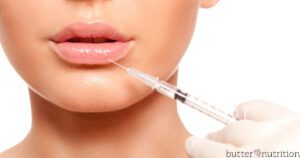 When most people hear the word lithium, they don't think about a naturally occurring mineral found in tap water, grains and vegetables that is an important trace mineral for health.
When most people hear the word lithium, they don't think about a naturally occurring mineral found in tap water, grains and vegetables that is an important trace mineral for health.
Instead, what often comes to mind is the drug version of lithium (lithium carbonate) that has been used in mental health facilities to treat mania and bipolar disorders as far back 1871. Here, the mineral lithium is being used as a drug in very high dosages (pharmacologic psychiatric dosages start at around 300-600mg per dose, and are often taken multiple times per day).
But what about micro-dosing or low-dose lithium (typically defined as around 1-20mg of lithium orotate per day, taken at the lowest effective dose)? Doses so small that they more closely translate to the amount you could find in food? This is a supplemental version of lithium that most are unfamiliar with, which is unfortunate because naturally occurring and low-dose lithium has some great perks.
Benefits of Lithium
The benefits of lithium are plentiful, but it's important to note here that I'm including research on lithium as a whole - both low and high dosages. Most of the research on lithium has stemmed from medical application and therefore pharmaceutical form, and not that of low or micro-dose lithium therapy.
Promotes longevity, Anti-aging and increases grey matter in the brain [3, 4, 6, 10]
Dr. Jonathan Wright, MD and a real pioneer in the natural health movement, says low dose lithium is an "anti-aging secret for your brain." Wright also notes that "there are also some very strong reasons to believe that lithium therapy will slow the progression of serious degenerative mental problems, including Alzheimer's disease, senile dementia, and Parkinson's disease." [6]
Anti-aggression, anti-suicidal and anti-impulsivity properties [1, 9, 12]
According to James Greenblatt. M.D, there are some very interesting studies that use hair analysis to assess the lithium levels in the hair of criminals: "Hair analysis is one of the most accurate methods for testing long-term mineral status and is therefore highly advantageous for determining where deficiencies are present. This study found that violent criminals had little to no stores of lithium when tested via hair mineral analysis, bringing forth the idea that perhaps lithium deficiency was contributing to defiant behaviors. More recent research has shown that a daily dose of 400 mcg of lithium in participants with histories of aggression and impulsivity had significant impact on happiness, friendliness, and other mood-related parameters." [1]
One journal article from 2018 even poses the question "Is impulsivity in part a lithium deficiency state? The article states: "Evidence from both basic and clinical researches support that lithium may decrease impulsivity and may at least partially, exert its antisuicidal effect via reinforcing "top-down brakes" of impulsive action. Considering the research data, we may suggest that even natural lithium level intake can influence impulsivity, a possible core factor that mediate to the manifestation of both suicidality and aggressiveness, or even criminality. Moreover, we may suggest that a lithium deficiency state may precipitate these situations." [12]
It also concludes: "Lithium may have superior antisuicidal effects relative to other mood stabilizers." [12]
Mood stabilizer [4]
Lithium is often used to support conditions such as anxiety, depression, ADHD and mental health disorders. [4, 17, 18]
As noted in the American Journal of Physiology, "Lithium, a trace element essential for health, has been a valuable first-line treatment for bipolar affective disorders for the past 50 years. In addition to serving as a mood stabilizer, lithium has been successfully used to treat a variety of other disorders in humans, including migraine and cluster headache, arthritis, leukopenia, neurodegenerative diseases, and more." [4]
Supports Folate and B12 Metabolism [11]
According to a 2002 study, lithium supports B12 and folate synthesis: "Since vitamin B12 and folate also affect mood-associated parameters, the stimulation of the transport of these vitamins into brain cells by lithium may be cited as yet another mechanism of the anti-depressive, mood-elevating and anti-aggressive actions of lithium at nutritional dosage levels." [11]
Lithium in Food
You can find trace amounts of lithium in everyday foods. According to Biological Trace Element Research, lithium is naturally found in the following foods: [14]
Cereals 4.4 mcg
Fish 3.1 mcg
Mushrooms 0.19 mcg
Vegetables 2.3 mcg
Meat 0.012 mcg
Dairy products 0.5 mcg
Nuts 8.8 mcg
The level of lithium in food is largely dependent on the environment in which you live, i.e. the amounts present in the soil, rock and water in your area.
Lithium was even used historically in the beverage industry and could have been in the old versions of your favorite soda. Before 1950 the soda now known as 7-Up, was previously Bib-Label Lithiated Lemon-Lime Soda. With added lithium carbonate, it was pushed as a mood-enhancing beverage. But lithium soda production stopped soon after the Food and Drug Administration banned the addition of lithium to soda and beer in 1948. [15]
Lithium Toxicity and Adverse Effects
Lithium, like many other vitamins and minerals is subject to overdose and toxicity.
It's well-established that high dose lithium is toxic to the thyroid and kidneys. It also can produce unwanted side effects such as weight gain, and feeling dull, flat or zombie-like. Low dose lithium, however, offers benefits with less risk of side effects. [13]
Low dose lithium taken short term has even been shown to have a kidney protective effect. [4]
While lithium therapy of any kind does have the possibility of impacting thyroid function, according to Dr. Wright's experience administering low-dose lithium therapy was relatively safe:
"At first I was exceptionally cautious and asked all of my patients taking lithium to have regular "lithium level" blood tests and thyroid function tests. After a year or so, I quit asking for the lithium level blood tests, since 100 percent of them came back very low. Another year after that, I stopped requesting routine thyroid function tests, too, only doing one when I was suspicious of a potential problem. In the 30 years since, I've rarely found one." [6]
Some doctors would disagree and advise that any amount of lithium therapy should be carefully monitored.
Low dose lithium therapy is not recommended during pregnancy or lactation, as well as in cases of renal disease.
Low Dose Lithium Therapy
There doesn't appear to be an official recommended daily allowance (RDA) established for Lithium, but an article from 2002 pointed out: "a provisional RDA for a 70 kg adult of 1,000 microg/day is suggested." [11]
Note: 1,000micrograms = 1mg
When it comes to low dose lithium therapy, it's important to note, a little lithium goes a long way. Working with your doctor or practitioner can help you discover if lithium is right for you as well as help establish the lowest effective dose.
Before considering or embarking with any form of lithium therapy, always run it by your doctor or healthcare team that is well-versed in alternative medicine to avoid adverse effects.
Finding out Your Lithium Level
Curious to find out your lithium level? Lithium is included in all hair analysis packages.
PIN IT:
References:
[1] http://www.lowdoselithium.com/lithium-as-a-therapy[2] https://www.ncbi.nlm.nih.gov/pmc/articles/PMC3712976/
[3] https://www.ncbi.nlm.nih.gov/pmc/articles/PMC4850359/
[4] https://www.ncbi.nlm.nih.gov/pmc/articles/PMC5210210/
[5] https://vimeo.com/26165981
[6] http://tahomaclinic.com/2010/05/lithium-the-misunderstood-mineral-part-1/
[7] https://www.psychologytoday.com/us/blog/evolutionary-psychiatry/201201/could-you-have-lithium-deficiency
[8] http://tahomaclinic.com/2010/06/lithium-the-misunderstood-mineral-part-2/
[9] https://www.ncbi.nlm.nih.gov/pmc/articles/PMC4369538/#B2
[10] https://www.ncbi.nlm.nih.gov/pmc/articles/PMC3151375/?report=reader
[11] https://www.ncbi.nlm.nih.gov/pubmed/11838882
[12] https://www.ncbi.nlm.nih.gov/pubmed/30605431
[13] https://www.ncbi.nlm.nih.gov/pmc/articles/PMC2248201/
[14] https://www.ncbi.nlm.nih.gov/pmc/articles/PMC6443601/
[15] https://books.google.com/books?id=5BB1DwAAQBAJ&pg=PT83&lpg=PT83&dq=
[16] https://www.psychiatrictimes.com/cognitive-behavioral-therapy/low-dose-lithium-different-important-tool
[17] https://www.ncbi.nlm.nih.gov/pubmed/22796912
[18] https://www.ncbi.nlm.nih.gov/pubmed/12154153








tina says
posts on lithium freak me out haha, people read it and think they should just buy it and take it. but too much or taking when you don't need it can cause bad issues and do damage. I usually don't talk about lithium unless people are already getting a test done just because of the dangers of it.
Victoria says
My son has a very high level of lithium on HTMA. I was wondering whether it's wasting or really high levels!? Any idea?
Eric Blenheim says
An absolutely massive percentage of people on lithium therapy develop ugly neck goitres, you might want to think about that.
Catherine says
Hi Eric,
Thanks for joining the conversation. I haven't seen this in the literature per the very low dose nutritional lithium discussed here. I believe you are taking about pharmaceutical dosages? If not, please feel free to link a study.
Abundantly,
Catherine